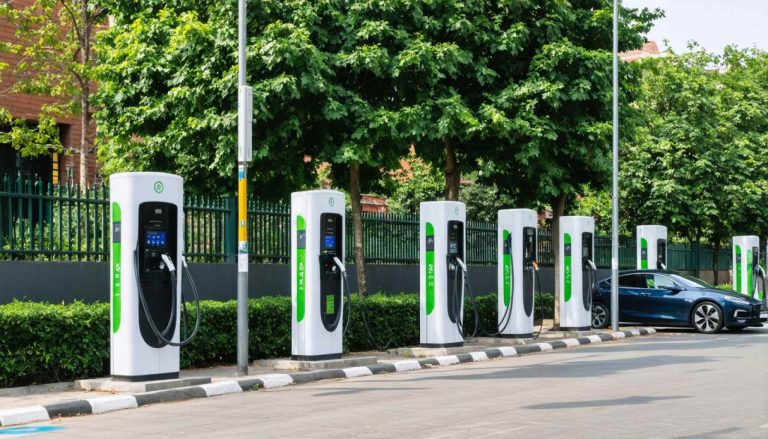EV Charging
EV Charging refers to the process of supplying electricity to electric vehicles (EVs) through designated charging stations. These stations can vary in type, including Level 1, Level 2, and DC fast chargers, each providing different power output levels and charging speeds.
Level 1 chargers use a standard household outlet, typically providing a slow charge, suitable for overnight charging at home. Level 2 chargers require a dedicated circuit and can charge vehicles more quickly than Level 1, making them common in public charging stations and commercial settings. DC fast chargers significantly reduce charging time by delivering high-voltage direct current, allowing for rapid charging and making long-distance travel more feasible for EV users.
EV charging infrastructure is crucial for the widespread adoption of electric vehicles, as it alleviates range anxiety—the concern that a vehicle has insufficient charge to reach its destination. Effective EV charging solutions are being developed to support renewable energy integration, smart grid technologies, and user-friendly charging experiences, contributing to a more sustainable transportation ecosystem.






